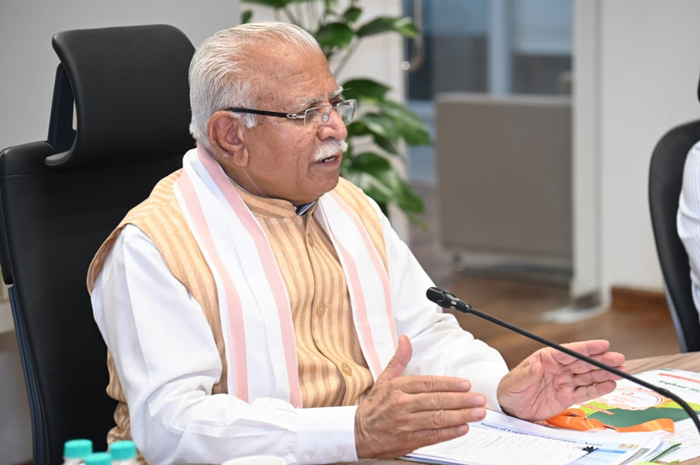Union Minister for Power Manohar Lal Khattar chaired the fifth meeting of the high-level ministerial group in New Delhi, convened to deliberate on structural reforms aimed at restoring the viability of India’s power distribution utilities.
Union Minister for Power, Manohar Lal Khattar, has called for a coordinated reform strategy involving the centre, state governments and regulatory commissions to restore the financial and operational health of India’s power distribution sector.
Speaking at the fifth meeting of the ministerial group constituted to examine issues related to discom viability, Khattar emphasised that collaborative action is essential to ensure reliable, cost-effective and environmentally sustainable power supply for all consumers. “Collaborative efforts by the central government, state governments and regulatory commissions are required to implement necessary reforms that ensure the viability of the power sector,” he stated.
He urged states to expedite the installation of prepaid smart meters in all government establishments and reaffirm their commitment to the national goal of ‘Power for All, at All Times’. The ministerial group, which includes representatives from key power-intensive states, is tasked with identifying structural reforms that can deliver irreversible improvements in distribution companies’ (discoms) performance and prevent future debt traps.
Power Secretary Pankaj Agarwal, in his welcome address, outlined the need for reform measures that embed long-term resilience into the sector. He noted that the proposed reforms must be designed to prevent the recurrence of financial distress and ensure that improvements made are irreversible.
Minister of State for Power and New & Renewable Energy, Shripad Yesso Naik, highlighted the importance of regulatory reforms and debt reduction strategies. “The proposed interventions based on the discussions held till now need to be taken by the central and the state governments for reducing the debt of distribution utilities, thereby improving their efficiency to provide quality and reliable power supply to consumers,” Naik said.
Joint Secretary (Distribution), presented a detailed analysis of the structural challenges facing distribution utilities. He pointed to high cross-subsidies that inflate manufacturing costs and reduce competitiveness, as well as persistent losses that have made the sector less attractive for private investment. Mishra noted that the proposed reforms—developed through prior deliberations and member state inputs—are intended to deliver lasting improvements and restore investor confidence.
Electricity Bill Review
The meeting also reviewed provisions of the proposed Electricity (Amendment) Bill, which aims to create an enabling environment for financial recovery, ease of living and doing business, and a smoother energy transition. The bill is expected to strengthen the regulatory framework and optimise distribution network utilisation.
Deliberations included the need for regulatory commissions to issue full-cost tariffs, with state governments providing subsidies separately if required. Participants discussed the introduction of mediation mechanisms to resolve disputes and discourage litigation, and acknowledged the urgency of recognising discom debt as a liability of state governments. Other key themes included the timely payment of subsidies and departmental dues, acceleration of smart metering infrastructure, and the use of data analytics to improve power purchase optimisation and demand forecasting.
The group also began drafting the contours of a new debt restructuring scheme for distribution utilities, aimed at restoring investor confidence and improving long-term viability. Power ministers from Maharashtra, Uttar Pradesh, Tamil Nadu, Rajasthan, Andhra Pradesh and Madhya Pradesh attended the meeting and reaffirmed their commitment to collaborative reform.


